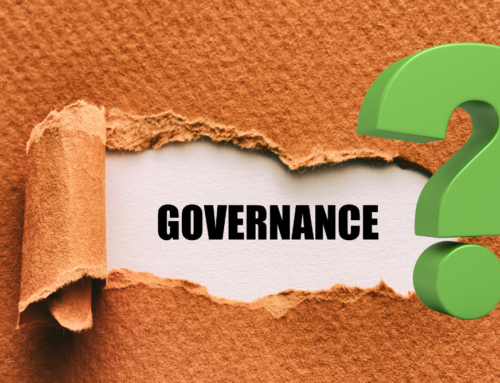Bad Governance Hurts Employees
WeWork (re)proves that when governance goes wrong, people get hurt – and very (very) often it’s the employees. Seriously, who wants to get fired from a company because it’s the company that’s incompetent, not you?
For those working too hard to hear about it (anyone?), WeWork was/is a massive office co-working scheme decked out as a tech company and run by a ‘charismatic’ (I hate the term) ‘grifter’ (love it). It’s value going public a few months ago was supposedly over $40 billion but it’s not that/never was. Going public didn’t happen, the grifter CEO got $1.7 billion to go away (wtf?), and the Company needs cash to keep operating. Now, employees who haven’t already been fired are waiting to find if and when they will be (the definition of ‘left holding the bag’).
Governance is what Boards of Directors do and theoretically, it’s kind of simple. First, figure out what the killer risks are and how to avoid them. Second, make sure there’s a strategic plan for being successful. And finally, make sure the CEO is for real. The goal of good governance is to keep organizations out of trouble and make sure they succeed.
How to Get in Front of Bad Governance by Asking Good Questions
For employees interested in avoiding the WeWork fate, here are three governance questions to ask that will help you understand whether your organization is blowing up or not (and you will be out of a job):
What are the killer risks you see that could take your organization down?
There are four risks for you to consider:
- Financial risks. Basically, spending too much and making too little. That never really works out. If WeWork were making money, raising money wouldn’t have mattered.
- Legal risks. Breaking the law is bad too. In 2016 Apple paid Nokia $2 billion for patent infringement.
- External market risks. Like Amazon, or new technology, or government regulations. If RIM hadn’t ignored the iPhone perhaps we’d all still be using Blackberrys.
- Internal operating risks. Fraud is bad. So is sexual harassment. Or faking emissions tests like Volkswagen did.
What’s cool about these risks is that you don’t have to be on the Board to see them. In fact, they’re often easier to see from inside the organization. Seriously, if you’re wandering around going ‘I don’t know how the company can afford this!’ or ‘I’m pretty sure that’s f’ed up!’, you’re likely onto something.
Does the organization have a solid strategy for staying in business?
There are two reasons for strategy. The first is to mitigate risk. The second is to execute the mission (what the company does) better.
For example, if your company distributes a product of some kind you likely need an Amazon strategy. Competing with Amazon, is a serious external risk for lots of organizations (including some who don’t yet think of Amazon as a competitor).
Or, if your company has employees and customers (?) and all their data is stored digitally, you will need a cyber-security strategy. Getting hacked happens all the time (apparently).
Modern strategies for building the business, not just protecting it include marketing and distributing on-line; automation; and (yay) ESG – environmental, social and corporate governance.
Sometimes, these strategies are firmly in place and you don’t need to worry about them (check first). But markets and technology change fast, so keeping up with corporate strategy is vital.
Finally, is the CEO for real?
As in, are they honest?; can they lead the strategy?; lead the team?; sell the organization?; build it and make money?
This one is challenging. Just because a CEO is tough to deal with doesn’t make them the wrong CEO. Just as being charismatic and inspiring doesn’t make them the right CEO (a key challenge at WeWork).
Part of the key to understanding the CEO is to pay attention to culture, plans and execution. That’s what CEO’s are responsible for. Toxic cultures kill the present. Dreamer cultures, no plans and no execution kill the future.
If you’re an employee, how do you find/get answers to these governance questions?
First, ask. Ask your boss or the CEO or your friend in Sales. ‘What’s our on-line strategy?’ ‘How will tariffs affect us?’ ‘How are we doing?’ That’s why beers and town halls were invented.
Second, if your organization is public (public company or a not-for-profit requiring public disclosure) read the published results and stay up on the press (the first hard clues at WeWork were the filings to go public). There will be clues. You don’t have to be a finance expert to read two lines on an income statement. If expenses are way higher than revenues, then there might be a problem you want to understand better.
Finally, if the company is private (or public), set an alert on Google (or wherever) so that you don’t miss news and other press on your organization. Often it’s really easy to know when a company is heading for trouble just by staying current. That was definitely the case with WeWork.
Getting In Front of Bad Governance Is Good for Your Career
Keep in mind when governance goes wrong, people suffer. By paying attention to risk; assessing strategy; and, objectively assessing the competence of the CEO, employees (like Directors) can get in front of bad governance. You may not save the organization but you can get a head start on finding somewhere better to work.








Leave A Comment